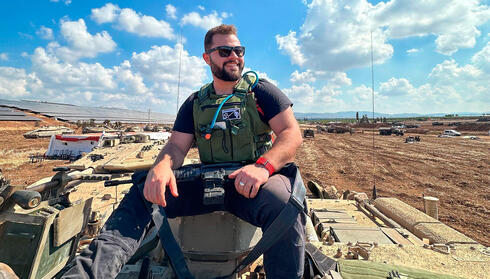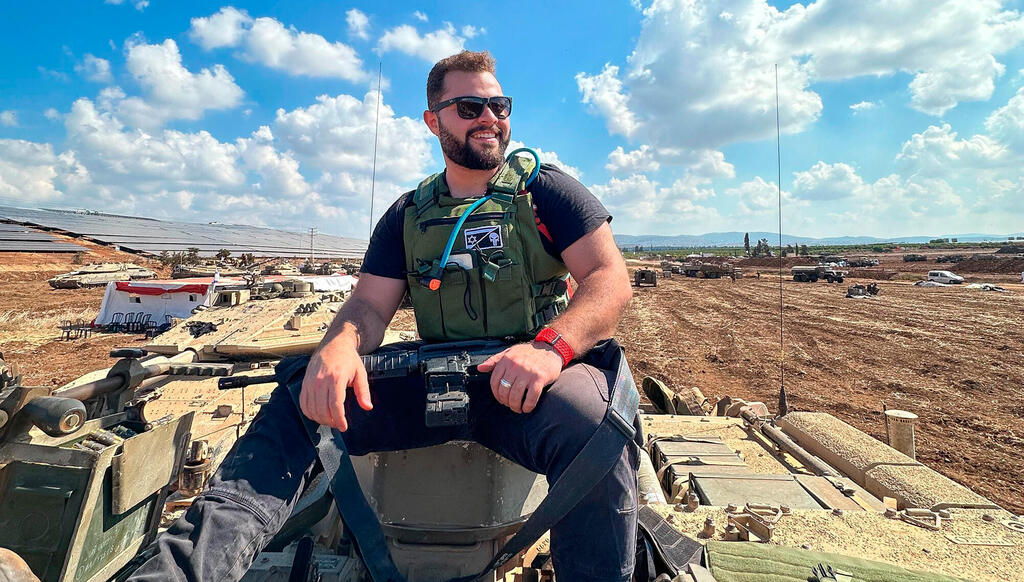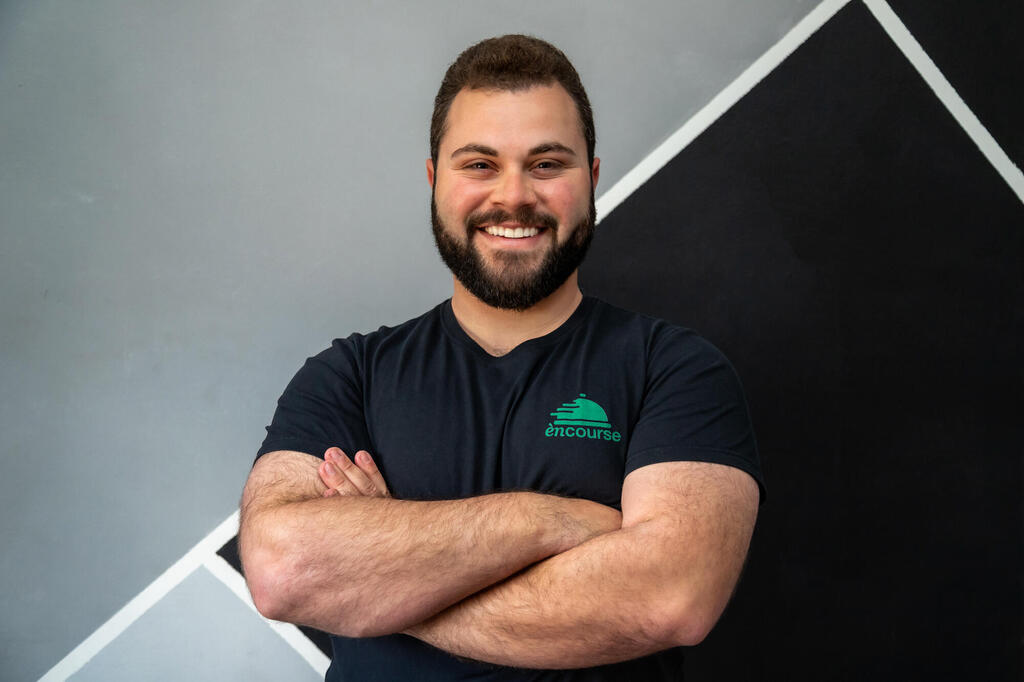
The Israeli entrepreneur who completed an exit while fighting Hezbollah
Amit Brandon Kadosh was on a visit to Israel when the war with Hamas broke out. He immediately joined his IDF reserve unit but never imagined that he would have to make a decision regarding the sale of his startup while stationed on the Lebanon border
The story of Éncourse could have ended completely differently. With almost half of the company in the reserves, including the CEO and founder, it was on the verge of freezing operations and entering a fast track to closure. But while he was wounded in his reserve service on the northern border, Amit Brandon Kadosh (26), the founder and CEO of the company, received an offer that changed everything.
Kadosh, who founded his company in Austin, Texas, where he traveled back and forth from Israel, returned to Israel for the Jewish holidays. He had a return ticket to the U.S. on October 10, but then the war broke out and he was drafted into the reserves to serve as a fighter in a classified unit, in one of the outposts in the Mount Hermon area.
In October, the future of the company, which developed an application that helps people find meals tailored to their needs and personal allergies in restaurants in their area, looked bright. It employed 20 people, had over 2,400 restaurants on the platform it developed, and operated in three locations in the U.S. - Austin, Boston, and Chicago. "The momentum was really good, but from the beginning of the war, the entire development team and I found ourselves in the reserves and we realized very quickly that if we didn't organize in time, it would lead us to close the company. What we did was contact all the business partners and told them that we are currently freezing activity because we didn’t know what would happen.”
Since the outbreak of the war, hundreds of thousands of soldiers have been recruited into the reserves, of which 20% are high-tech industry workers - double their share in the population. This reality meant that many startup companies, especially small ones, had to continue operating with limited personnel, sometimes with complete departments that were missing, including senior managers and key people in the organization.
In large companies, even if the CEO is drafted into the reserves, there is a team that backs him up. If it is a company with global operations, then the global team is 'mobilized' to help the business continuity of the company. On the other hand, small startups often have relatively young employees who are likely to be drafted into the reserves at a larger proportion, and usually, there is no one to back them up or replace the workers who have been sent to the battlefront.
One night, at 10:30pm, while he was in the reserves in the northern region, Kadosh received a call from one of the American partners, a company that operates point-of-sale systems in the U.S. "He told me that he really likes what we do and made an offer to acquire us. He told me that we have 72 hours to get back to him and that the offer is 'Take it or leave it' and was not subject to negotiation," he says.
A few hours after receiving the offer, Kadosh was injured by an anti-tank-guided missile launched into Israel, which luckily caused only minor injuries. "I'm not a big believer, but I realized what I should do and the next morning we decided to accept the sale offer. We started the process with me full of mixed emotions. On the one hand, it's my baby, we were picking up momentum, and the company was in good shape. There is always a desire to build a bigger company and register a much more significant exit. On the other hand, the injury made me understand what was really important in life. I'm a family man and it's time for me to focus on that," he says.
The purchasing company, for an amount estimated at several hundreds of thousands of dollars, is an American provider of cash register systems that plans to use the technology built by Éncourse and integrate it into cash register systems to provide restaurant owners with insights into the nature and segmentation of customers.
"We were preparing for the launch of another product before the war, but we realized that we would not survive the launch and that we would have to freeze activity even though the company also has an American arm that continues to add customers. We were supposed to end 2024 with revenues of $2.1 million, but the war completely changed our plans. We had to respond to the offer in such a short time and that is why there were mixed emotions. It was very important to me that none of the employees in the reserves were harmed by the sale. It was my decision and that of my partner that we will take care of all the employees, and we made sure to give them a severance package that will provide for them for at least the next four to five months," he says.
Kadosh grew up in a kibbutz in the Afula area up north and founded the startup Éncourse together with a partner (who changed along the way) three and a half years ago. This was the fourth venture he founded even though he is only 26 years old. Before that, he had a venture in the cellular sector that closed, and stores on Amazon. He jokes that chronologically he may be 26 but in reality, he is 144 due to the intensity of his life as an entrepreneur. After being 'married' to a startup for three years, the injury during his reserve service made him rethink what was important in life.
"Right now I'm in Israel. But I still don't know where I'll find my bride. I've been married to my startup for three and a half years and now I'm turning to the next chapter," he says. Professionally, he is currently considering offers to join existing teams. "I don't currently have any idea for a new venture and I think that it is precisely during this period that I prefer to join an existing team and serve as a force multiplier through the knowledge I gained and learned until I set up the next thing. It's not a question of if I will start a new venture, but when," he says.















